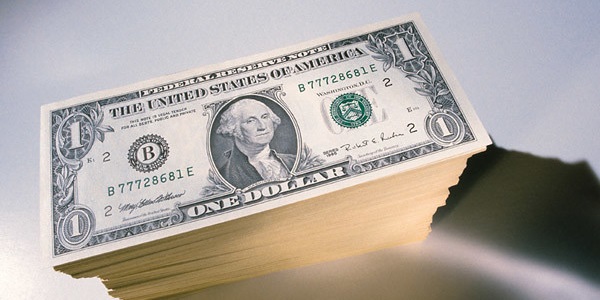Myths About Small-Business Debt
To increase the success of your business, you need to make more money — and sometimes you need to borrow money to increase cash flow and unlock...
Manage your everyday finances with convenient accounts, flexible cards, and personalized service designed to fit your life.
At First Federal Bank, we offer flexible mortgage solutions for almost any situation, helping you secure the right financing for your dream home.
Business banking offers secure financial management, streamlined transactions, credit options, and tools to help businesses grow efficiently and sustainably.
2 min read
First Federal Bank : January 26, 2024 10:00:00 AM EST

 Whether you’re a newly minted solo entrepreneur or a long-time business owner who’s going through tough times, you might find your company needs a little extra money. Before you dip into your personal savings to make ends meet, consider the benefits and drawbacks:
Whether you’re a newly minted solo entrepreneur or a long-time business owner who’s going through tough times, you might find your company needs a little extra money. Before you dip into your personal savings to make ends meet, consider the benefits and drawbacks:
Pay less in interest
If your business is strapped for cash, your personal savings can help you avoid racking up debt to make ends meet. Instead of taking out a loan or carrying a balance on your company’s credit card, sometimes it makes sense to spot your business just enough money to cover a short-term expense. This could save you money by avoiding the sting of paying interest, explains Entrepreneur contributor Timothy Carter. However, this is best kept to being a one-off situation — if you find yourself chronically pumping your personal cash into your business to keep it afloat, it’s time to reassess your company’s finances.
Less time than a loan
If your company needs money quickly, it’s hard to beat an infusion of cash from your personal funds. Carter explains loans and investment deals can take weeks or months to go through, so if speed is a priority, consider tapping into your savings. And unlike taking money from an outside investor, using your own money won’t dilute your ownership shares.
Consider your personal finances
Not every entrepreneur is in a position to keep their company afloat with personal money. Before you delve into your savings, take a moment to assess your personal finances. If you have a net worth of millions, it may not put a dent in your savings to lend your company a few thousand dollars. If you’re barely keeping the lights on at your residence, you may want to rethink your decision. Carter warns you should avoid drawing funds from your retirement accounts and emergency funds. Furthermore, Carter cautions against digging yourself deeper into personal debt, particularly when you have other financing opportunities at your disposal.
Potential for future complications
Forbes Finance Council consultant Morgan Deane cautions against mixing your business and personal finances. Deane explains mixing funds can quickly become a bad habit that can open the door to unprofessional spending habits and blurred lines between your business and professional financial management. While this may not seem like a big deal, it can cause quite a headache if your company has to deal with an IRS audit.
It can become a crutch for your company
Helping your company cover expenses once or twice is understandable. However, don’t let this become a crutch. In addition to straining your personal finances, regularly covering company expenses can result in you becoming over-leveraged. And since your records may be complicated by your personal cash infusions, you may feel like your company’s finances are healthy when there’s actually a serious cash flow problem. To make matters worse, Cameron Peake of the Forbes Finance Council cautions covering too many expenses with your savings can lead to complicated tax prep.
Need help making ends meet at your business? Contact us today to learn more about your funding options.

To increase the success of your business, you need to make more money — and sometimes you need to borrow money to increase cash flow and unlock...

You’ve had a dream of going into business for yourself, and now you have a product or service you could turn possibility into reality. When you’re...

A low credit score is a detriment to any individual or business seeking loans, but it doesn’t entirely eliminate your financing options. FICO defines...
Manage your accounts, make payments, and more.
Open an account with us.